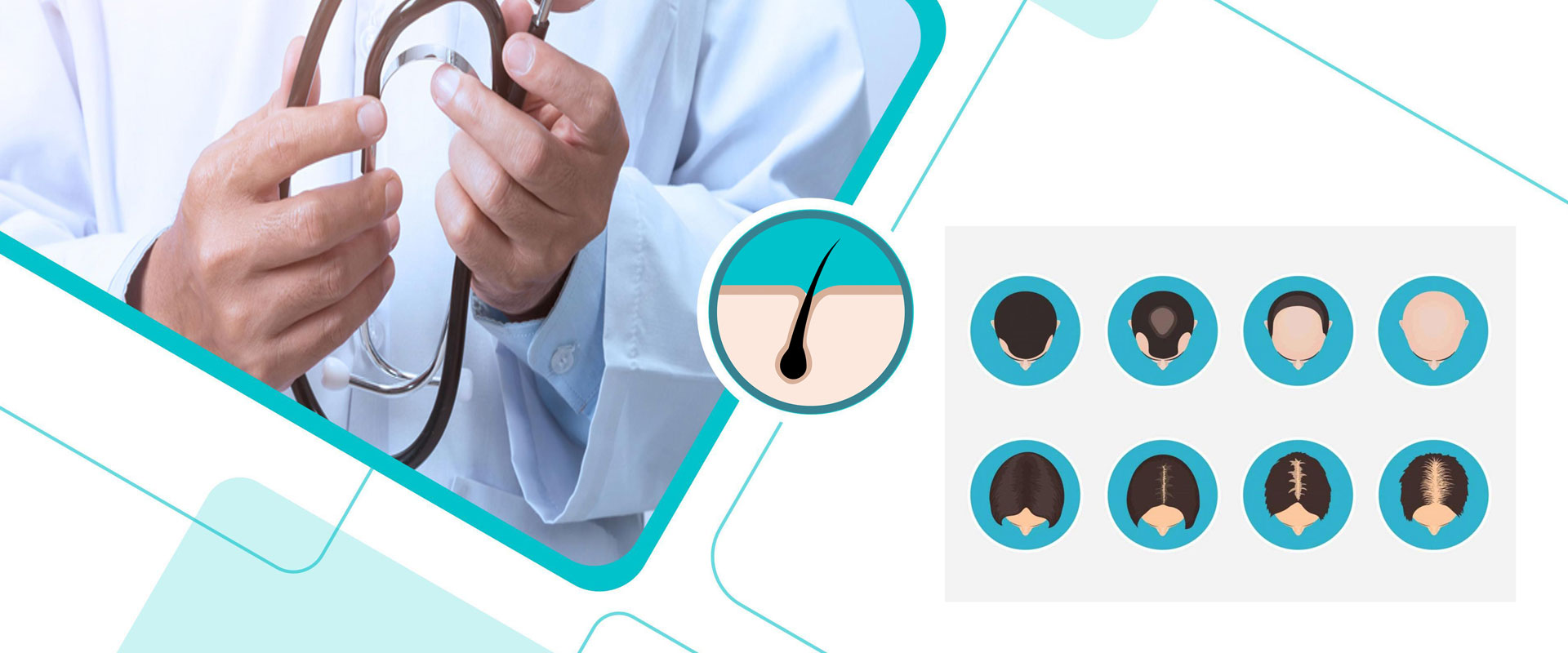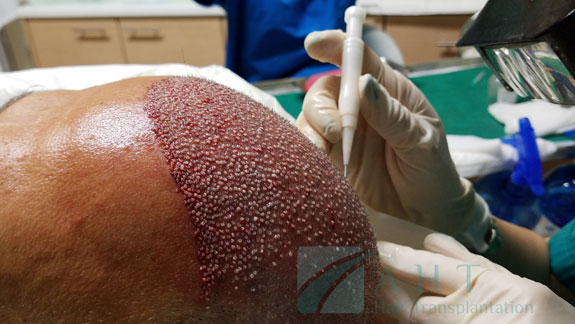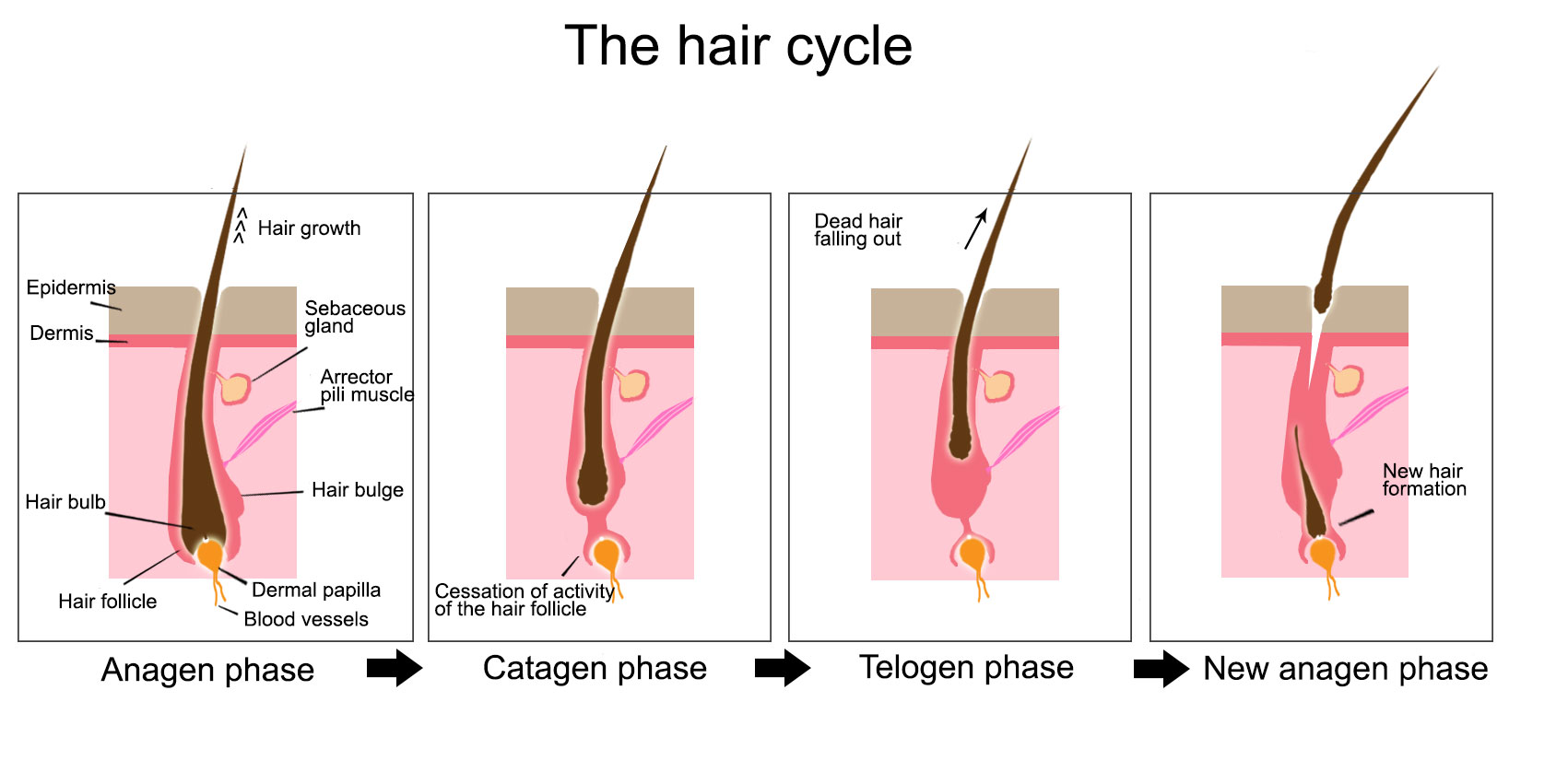

Hair loss problem, things you need to know
Hair loss is an increasingly common problem
Hair loss is a problem that many men and women face today. According to recent studies, hair loss is found in as many as 70% of men, and in women, who are considered less likely to have this problem. Statistics show otherwise - about 30% of women face or will face hair loss later on in life. However, in women, hair loss usually does not end with total baldness, as is the case with men. There are several types of hair loss. According to localization and distribution, hair loss can be diffused or occurring in restricted areas, and according to the final outcome, baldness can be temporary and permanent.
Causes of hair loss
Hair loss, or alopecia in medical terms, is the falling of hair from the head or other parts of the body, and can affect smaller or larger areas of the skin. It can also occur in patches. The fact is that everybody is losing hair - during washing, combing, styling... In most people, normally from 50 to 100 hairs fall off per day. That is almost invisible because an average person has about 100,000 hairs on their head. These are hairs that regenerate and restore. If you see a few fallen hairs after washing, this is not a cause for concern. In addition, with time, as we grow old, it's normal for hair to be thinning. However, excessive hair loss can be a traumatic and depressing experience, both for men and women.
The most common cause of hair loss is the hereditary factor, more commonly known as androgenic alopecia. In addition, hormonal disorders, stress, bacterial and fungal infections, anemia, thyroid diseases, menopause, chronic diseases can cause hair loss. Also anemia caused by iron deficiency or rigorous diets can affect hair loss. Increased hair loss can also occur as a result of the harmful action of a substance on the follicle that is in the phase of active hair growth.
Transplantation as the best solution against baldness
Thanks to the development of medicine and technology, hair transplantation is the only permanent solution against hair loss. The latest AHT hair transplant method gives the best result with the least consequences. This procedure is completely painless and does not cause any itches or pains, even after transplantation when the anesthetic has ceased to have an effect.
The advantage of the AHT method in comparison to all other methods, in addition to regular Plasma therapy, is the use of follicle-stabilizing elements which allow the follicle to stay outside the body longer, which directly reflects the end result.
It is possible to implement the extracted follicle immediately after extraction, but only if the skin is adequate for follicle extraction and if a smaller procedure is done. To perform such a method it requires twice as much time than a regular procedure. During the procedure, other elements that promote faster healing and better energy supply are used to make and maintain the follicle vital.

Hair transplantation, AHT method, work with an implanter approx
Causes of hair loss can be diverse:
Diabetes
Diabetics can experience hair loss due to various factors. A few of these major factors that lead to hair loss for diabetics are poor circulation and endocrine imbalance.
Anemia
Anemia is a condition that causes iron deficiency and can lead to hair loss. Not only is iron deficiency is a cause of anemia, but an increase in blood loss can lead to a condition known to cause hair loss.
Malnutrition
It is known that people who suffer from malnutrition lose their hair, especially if there is a lack of zinc. If you suffer from bulimia or anorexia, then you are more at risk of losing your hair due to malnutrition.
Lupus
It is an autoimmune disease that causes hair loss in most people suffering from it. Just because you have lupus does not mean you will experience problems with hair loss, but there are great chances.
This condition affects women under the age of 20 years and can be diagnosed with blood tests. What makes this condition worse is the fact that some of the drugs used as treatment can cause hair loss as a side effect.
Chemotherapy
Chemotherapy involves the use of powerful drugs to remove cancer cells that grow rapidly. However, chemotherapy does not only destroy carcinogens but also all of the fast growing cells, including follicles.
Although chemotherapy can cause hair loss, there are some forms of chemotherapeutic drugs that do not affect your hair. Fortunately, once you stop the chemotherapy, your hair should be restored and begin to grow within a few months.
Steroids and fitness products
It should not come as a shock, but a lot of fitness products and steroids that people consume to achieve their best physical shape can cause hair loss. To begin with, anabolic steroids have long been documented to lead to hair loss. Taking HGH or human growth hormones can lead to hair loss.
Some people who take HGH or steroids often use some tablets. It helps to block DHT to alleviate the effects of steroids and the HGH they take. Some doctors believe that taking these tablets in combination with steroids or HGH only leads to a greater hair loss.
Whey products are very popular today, especially in men who lift weights and need a high level of protein to recover from exercise. However, whey products may have the effect of steroids due to growth hormone that cows were treated with during growing up. In such cases, there is a high likelihood that users of whey products will experience side effects. Hair loos is very associated with steroids absorbed in the body.
Genes
The most common cause of hair loss, especially among men, is genetics. Doctors believe that the high percentage of all cases of balding men can be attributed to genetics. However, just because you have inherited the gene of the baldness from your family members, does not mean that you will become bald.
In order for your genetics to affect your hair, many other factors must be present. Factor such as age, blood hormone levels and stress are very common. If a person has problems with hair loss, it does not have to mean that their relatives will have a similar problem. It should also be remembered that hair loss often comes in cycles, not suddenly.
Diseases of the thyroid gland
Diseases of the thyroid gland can lead to unwanted hair loss, which occurs in cases where the thyroid gland produces too much or insufficient hormones. When your body produces an excessive amount of hormones it is called hyperthyroidism. When your body does not produce enough hormones, that's hypothyroidism. Symptoms of hyperthyroidism will differ from case to case. The best way to detect these diseases is to do a blood test.
Thyroid diseases affect hair growth as they affect both metabolism and hair follicles. It is important to note that some medicines used to treat thyroid disease can cause hair loss.
Hormones
Hormones have a huge impact on the amount of hair you have on your head. It is believed that dihydroT or DHT is the major hormone that causes hair loss (primarily androgenic alopecia).
The dihydroT hormone binds to the hair follicle base and causes baldness. Hair follicles will always have a problem with hair growth with an increased presence of DHT. An enzyme that is found in various body tissues known as 5-alpha reductase or 5AR, is what converts hormon "T" into DHT.
Usually DHT affects only the front of the head and the upper part of hair, while the back and the side of the head remain untouched. Men tend to have increased 5-alpha reductase activity compared to women, which explains why baldness in women is somewhat different than in men.
There are various ways to block the activity of DHT, some of them are prescription drugs. Use only medications approved by the FDA to stop the production of dihydroT and treat hair loss caused by this hormone.
Ecological causes
Ecology around you contains different things that can cause hair loss. Some of these things include selenium, iron, copper, lead, cadmium, mercury and aluminum. Toxins that cause air pollution and smoking can also cause hair loss by inhibiting the production of protein from the hair.
Stress
Most people believe that stress does not necessarily have to cause hair loss, but it certainly increases the speed at which it occurs. A stressful situation in your life is sometimes all that is needed to activate the already predisposed hair loss code.
Compared to men, it seems that women lose more hair due to stress. However, this hair loss caused by stress is often not constant for women. Stress causing hair loss is essentially "telogen effluvium", a disorder characterized by hair thinning by early entry into the telogen phase. This happens whenever a body experiences a temporary shock like when you go through a traumatic accident, a health condition, or if your body lacks certain nutrients.
When you go through a very stressful situation as mentioned above, your body will begin to use its resources for other purposes it considers necessary. When the stressful situation passes, the body will redirect its resources to where they belong and your hair will return.
Poor blood circulation
Poor circulation can definitely lead to hair loss. Your hair needs vitamins, minerals and other nutrients to stay healthy. Blood flow is what sends the nutritious to hair, which is why poor blood flow will cause hair loss.













